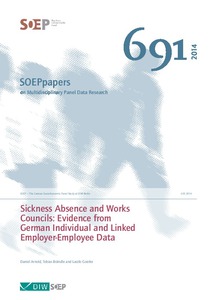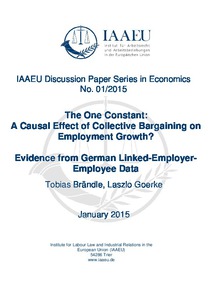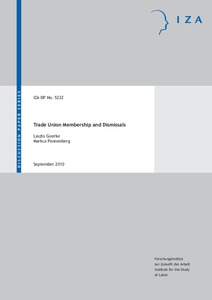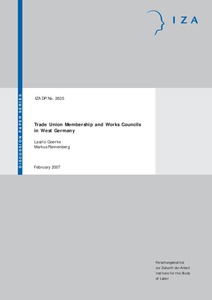-
1
-
2“…We use linked-employer-employee data for Germany and analyse the effect of collective bargaining coverage on employment growth in German plants. We find a robust and negative correlation between being covered by a sector-wide bargaining agreement or firm level contract and employment growth per annum of about 0.8 percentage points. …”
TEXT -
3“…We describe a model, incorporating institutional features of the German labour market, which explicitly allows for social custom effects in the determination of union membership. …”
TEXT -
4“…Our theoretical model predicts that not only the law and its interpretation by labour courts but also the costs of a suit have an impact. Using West German panel data for 1991-2006, we find that the employees\' costs resulting from a suit and the legal determinants of such transfers affect the incidence of severance payments. …”
TEXT -
5“…In particular, using data from the German Socio-Economic Panel we can show that roughly 50% of the observed raw differential in individual dismissal rates can be explained by the estimated average partial effect of union membership."…”
TEXT -
6“…Furthermore, a shift in risk attitudes can alter collective bargaining outcomes. Using German panel data (GSOEP) and three novel direct measures of individual risk aversion, we find evidence of a significantly positive relationship between risk aversion and the likelihood of union membership. …”
TEXT -
7“…If works councils represent the face of unions, union membership of employees should be related positively to the existence of works councils and their proximity to unions. Using data from the German Socio-Economic-Panel SOEP we find that (a) works councillors exhibit a higher probability of being a union member, (b) the mere existence of a works council within an establishment has no impact on union membership and (c) a 10 % decrease in the average share of unionised works councillors coincides with a 10 % fall in the probability of being a union member. …”
TEXT







